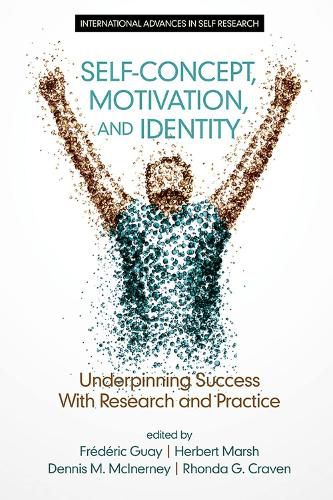Readings Newsletter
Become a Readings Member to make your shopping experience even easier.
Sign in or sign up for free!
You’re not far away from qualifying for FREE standard shipping within Australia
You’ve qualified for FREE standard shipping within Australia
The cart is loading…






This title is printed to order. This book may have been self-published. If so, we cannot guarantee the quality of the content. In the main most books will have gone through the editing process however some may not. We therefore suggest that you be aware of this before ordering this book. If in doubt check either the author or publisher’s details as we are unable to accept any returns unless they are faulty. Please contact us if you have any questions.
The concept of the Self has a long history that dates back from the ancient Greeks such as Aristotle to more contemporary thinkers such as Wundt, James, Mead, Cooley, Freud, Rogers, and Erikson (Tesser & Felson, 2000). Research on the Self relates to a range of phenomena including self-esteem, self-concept, self-protection, self-verification, self-awareness, identity, self-efficacy, self-determination etc. that could be sharply different or very similar. Despite this long tradition of thinkers and the numerous studies conducted on the Self, this concept is still not very well defined. More precisely, it is not a precise object of study, but rather a collection of loosely related subtopics (Baumesiter, 1998). Also, in the philosophical literature, the legitimacy of the concept of self has been brought into question. Some authors have argued that the self is not a psychological entity per se, but rather an illusion created by the complex interplay between cognitive and neurological subsystems (Zahavi, 2005). Although no definitive consensus has been reached regarding the Self, we emphasis in this volume that the Self and its related phenomena including self-concept, motivation, and identity are crucial for understanding consciousness and therefore important to understand human behavior.
Self-Concept, Motivation and Identity: Underpinning Success with Research and Practice provides thus a unique insight into self-concept and its relationship to motivation and identity from varied theoretical and empirical perspectives. This volume is intended to develop both theoretical and methodological ideas and to present empirical evidence demonstrating the importance of theory and research to effective practice.
$9.00 standard shipping within Australia
FREE standard shipping within Australia for orders over $100.00
Express & International shipping calculated at checkout
This title is printed to order. This book may have been self-published. If so, we cannot guarantee the quality of the content. In the main most books will have gone through the editing process however some may not. We therefore suggest that you be aware of this before ordering this book. If in doubt check either the author or publisher’s details as we are unable to accept any returns unless they are faulty. Please contact us if you have any questions.
The concept of the Self has a long history that dates back from the ancient Greeks such as Aristotle to more contemporary thinkers such as Wundt, James, Mead, Cooley, Freud, Rogers, and Erikson (Tesser & Felson, 2000). Research on the Self relates to a range of phenomena including self-esteem, self-concept, self-protection, self-verification, self-awareness, identity, self-efficacy, self-determination etc. that could be sharply different or very similar. Despite this long tradition of thinkers and the numerous studies conducted on the Self, this concept is still not very well defined. More precisely, it is not a precise object of study, but rather a collection of loosely related subtopics (Baumesiter, 1998). Also, in the philosophical literature, the legitimacy of the concept of self has been brought into question. Some authors have argued that the self is not a psychological entity per se, but rather an illusion created by the complex interplay between cognitive and neurological subsystems (Zahavi, 2005). Although no definitive consensus has been reached regarding the Self, we emphasis in this volume that the Self and its related phenomena including self-concept, motivation, and identity are crucial for understanding consciousness and therefore important to understand human behavior.
Self-Concept, Motivation and Identity: Underpinning Success with Research and Practice provides thus a unique insight into self-concept and its relationship to motivation and identity from varied theoretical and empirical perspectives. This volume is intended to develop both theoretical and methodological ideas and to present empirical evidence demonstrating the importance of theory and research to effective practice.